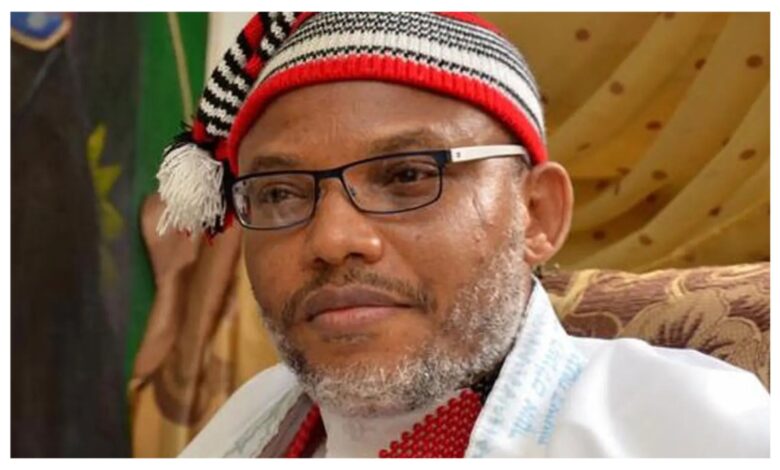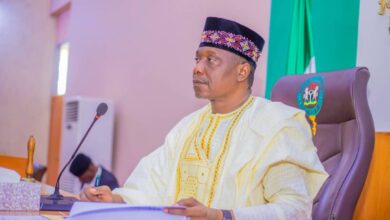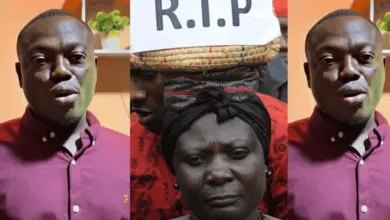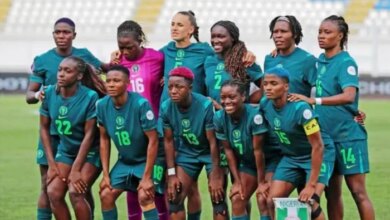Nnamdi Kanu writes Trump, alleges ‘Judeo-Christian Genocide’ in Nigeria, demands US-led inquiry

The detained leader of the Indigenous People of Biafra, IPOB, Mazi Nnamdi Kanu, has written to U.S. President Donald Trump, commending his recent stance on the alleged persecution of Christians in Nigeria while urging the United States to intervene in what he described as a “Judeo-Christian genocide” across the country.
In the letter dated November 6, 2025, and released by his lawyer Aloy Ejimakor, Kanu hailed Trump for his public declaration that the U.S. was “prepared to act militarily and cut aid” if Nigeria failed to protect its Christian population.
Kanu described Trump’s comments as “factual, verifiable, and long overdue,” saying they reflect the grim reality faced by both Christians and Jewish adherents in Nigeria.
“As a practicing Jew and believer in the Judeo-Christian heritage that shaped Western civilization, I thank you for your courage to speak the truth.
“Christians in Nigeria face an existential threat, and the world has looked away for too long,” he wrote.
Kanu claimed that religiously motivated killings were not limited to the northern states but had spread into the South-East and South-South, where he alleged that government forces and extremist militias were working together to suppress Igbo Judeo-Christians under the guise of counter-terrorism.
“This genocide is no longer confined to the North. It has metastasized into the Igbo heartland, where Judeo-Christians are being systematically exterminated,” the letter stated.
The IPOB leader also used the letter to recount his abduction from Kenya in June 2021 and continued detention in Nigeria, despite being discharged and acquitted by the Court of Appeal in Abuja on October 13, 2022.
He said his continued imprisonment was in defiance of both Nigerian and international law, describing it as “a state-orchestrated effort to silence a Judeo-Christian voice.”
“I was abducted from Kenya and rendered to Nigeria illegally. The Court of Appeal ordered my release, yet I remain in solitary confinement.
“Even the UN Working Group on Arbitrary Detention declared my detention unlawful and politically motivated,” Kanu said.
Kanu urged President Trump to spearhead a U.S.-led independent inquiry into what he called state-sponsored massacres of Judeo-Christians in Eastern Nigeria.
He also called for Magnitsky Act sanctions against current and former Nigerian security officials implicated in alleged human rights abuses.
He specifically listed Lt.-Gen. Tukur Buratai (Nigeria’s Ambassador to Benin Republic), DSS Director-General Yusuf Bichi, and several South-East military commanders as deserving of targeted sanctions for their alleged roles in extrajudicial killings.
Kanu cited several examples of violent crackdowns, including: ”The Nkpor Biafra Heroes Day massacre of May 30, 2016 (documented by Amnesty International),
”The killing of 20 IPOB supporters in Port Harcourt during a pro-Trump rally on January 20, 2017, and
”The alleged murder of over 2,000 Igbo youths in security operations between 2021 and 2025.
He said these atrocities are part of a coordinated attempt to wipe out a people and their faith, a mirror of Rwanda’s playbook, he said.
Kanu further urged Trump to support an internationally supervised referendum for the self-determination of the Igbo people, arguing that it remains the only peaceful solution to Nigeria’s growing ethnic and religious tensions.
“Mr. President, history will judge us by what we do when genocide knocks. You have the power to prevent a second Rwanda in Africa,” he wrote.
“One tweet, one sanction, one inquiry could save millions.”
Kanu ended his letter with a message of peace and faith, reaffirming IPOB’s commitment to non-violence:
“Even from a prison cell, I stand for peace, truth, and freedom. We reject violence in all its forms. May the God of Abraham, Isaac, and Jacob give you wisdom and courage to act.”
The Nigerian government, however, has consistently denied allegations of religious persecution, insisting that insecurity in the country stems from terrorism, banditry, and criminality, not faith-based conflict.
Officials maintain that both Muslims and Christians have been victims of extremist violence.




